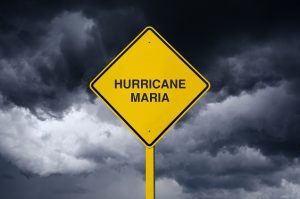We Need Lawyers Who Can 'Write' In Spanish To Help Puerto Rico
And we need to ease the rules so lawyers can help.
 Puerto Rico was slammed by a category four hurricane and the entire island is without power. That’s 3.5 million people, almost all of whom are American citizens, without power.
Puerto Rico was slammed by a category four hurricane and the entire island is without power. That’s 3.5 million people, almost all of whom are American citizens, without power.
If you are friends with U.S. President Donald Trump, please let him know.
Puerto Rico is going to need a lot of help. Right now, it needs basic humanitarian help. But soon, it’ll need direct financial help to rebuild and a lot of legal aid to help citizens recover.

Early Adopters Of Legal AI Gaining Competitive Edge In Marketplace
But the legal help will come with a twist. Puerto Rico is a bilingual territory. There are, of course, many many lawyers who can speak Spanish fluently enough to service Spanish-speaking clients. But in Puerto Rico, you also need to be able to read and write in Spanish, because at the local level, proceedings and disputes are conducted in Spanish.
And you also might want to brush up on your “continental law” a little bit. JD Supra explains:
Unlike most U.S. jurisdictions, Puerto Rico has a bilingual, mixed legal system. Due to Puerto Rico’s colonial history with Spain, its legal system was modeled under the Spanish civil code. The civil code is the primary legal source in this jurisdiction and is applied to areas such as contractual and property law.
It should also be noted that the local legal system and courts operate in Spanish. It is only at the Federal level that English is used. Even in those cases, federal courts often rely on local legal opinions issued in Spanish.
The insurance claims are going to be in Spanish. The contracts are going to be in Spanish. The courts are going to expect your filings in Spanish. This isn’t a situation where your “mucha agua?” skills are going to be of much use.
Sponsored

The Business Case For AI At Your Law Firm


Legal AI: 3 Steps Law Firms Should Take Now

Early Adopters Of Legal AI Gaining Competitive Edge In Marketplace

Is The Future Of Law Distributed? Lessons From The Tech Adoption Curve
We know there are thousands of lawyers able to do it and ready to help. But Puerto Rico can help get legal services to those who will need them by loosening its local rules and allowing out-of-state attorneys to practice there.
Texas did it, after Hurricane Harvey. And while it’s worth nothing that it’s more complicated to get people who can reliably practice in a bilingual, bi-system territory, every effort should be made to allow mainland attorneys with the ability and desire to help to do so.
If you have the skills, there are going to people who need you.
Maria – Concurrent Causation in Puerto Rico [JD Supra]
Earlier:
Sponsored

Is The Future Of Law Distributed? Lessons From The Tech Adoption Curve

Navigating Financial Success by Avoiding Common Pitfalls and Maximizing Firm Performance
Elie Mystal is an editor of Above the Law and the Legal Editor for More Perfect. He can be reached @ElieNYC on Twitter, or at elie@abovethelaw.com. He will resist.







